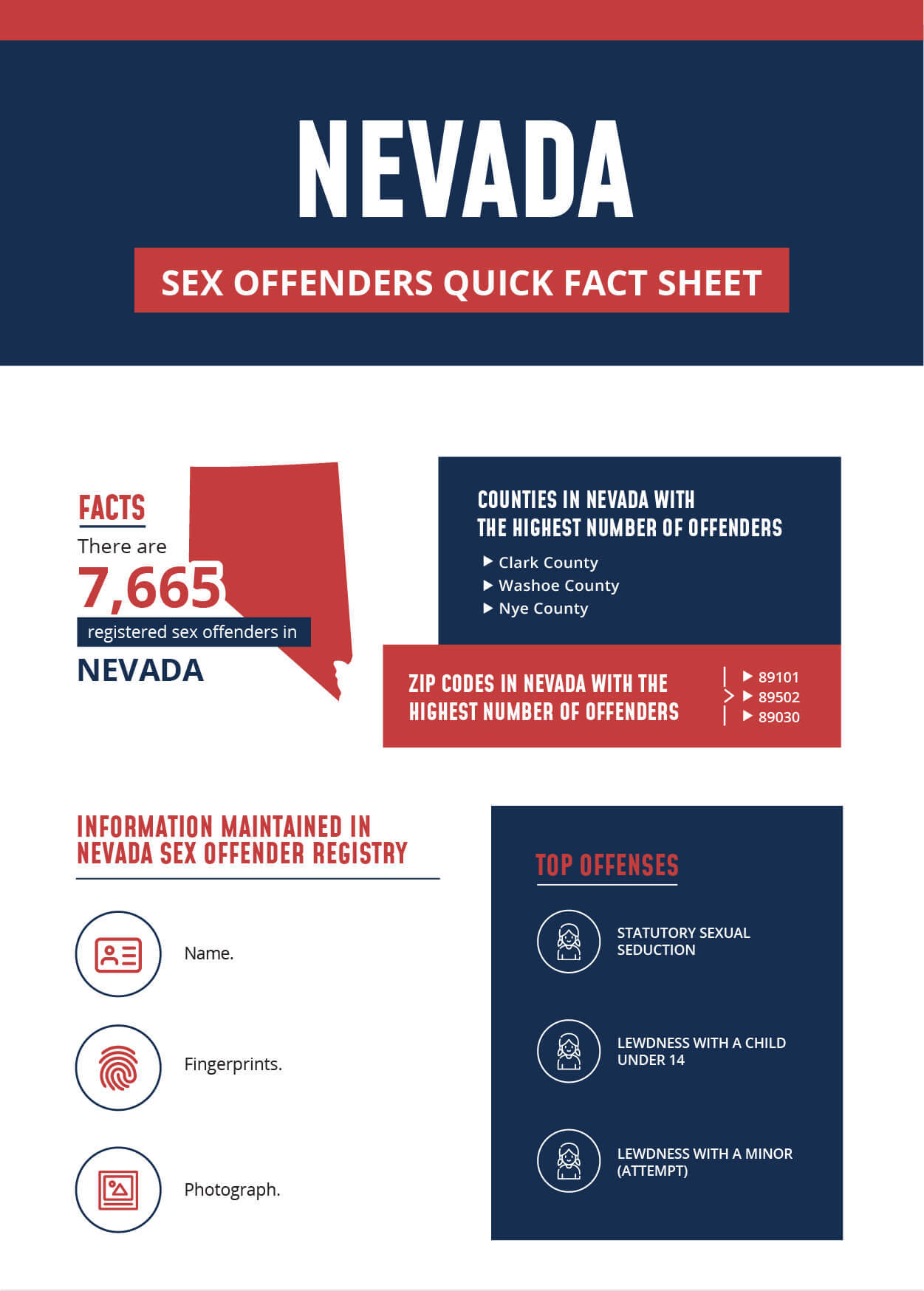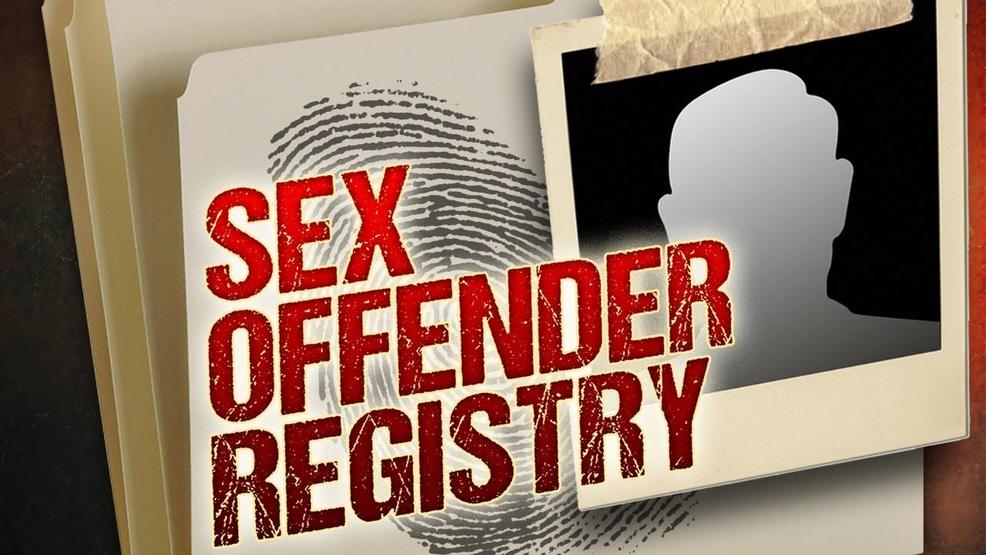Navigating Transparency And Safety: A Comprehensive Look At Nevada’s Sex Offender Registry
Navigating Transparency and Safety: A Comprehensive Look at Nevada’s Sex Offender Registry
Related Articles: Navigating Transparency and Safety: A Comprehensive Look at Nevada’s Sex Offender Registry
Introduction
In this auspicious occasion, we are delighted to delve into the intriguing topic related to Navigating Transparency and Safety: A Comprehensive Look at Nevada’s Sex Offender Registry. Let’s weave interesting information and offer fresh perspectives to the readers.
Table of Content
Navigating Transparency and Safety: A Comprehensive Look at Nevada’s Sex Offender Registry

The concept of a sex offender registry, while often met with mixed emotions, is fundamentally rooted in the pursuit of public safety and informed decision-making. Nevada, like many other states, has implemented a robust sex offender registry system, providing the public with access to information about registered sex offenders residing within the state. This registry, accessible online, serves as a valuable tool for parents, educators, community organizations, and individuals seeking to make informed choices about their safety and the safety of those they care for.
Understanding the Nevada Sex Offender Registry
The Nevada Sex Offender Registry, maintained by the Nevada Department of Public Safety, is a public database containing information on individuals who have been convicted of certain sex offenses in the state. The registry is a dynamic and evolving system, reflecting changes in legislation, court rulings, and technological advancements.
The Data Available:
The Nevada Sex Offender Registry provides the public with a range of information about registered sex offenders, including:
- Personal Information: This includes the offender’s name, date of birth, race, gender, and physical description.
- Offense Information: The registry details the nature of the offense, the date of conviction, and the county where the offense occurred.
- Current Address: The registry provides the offender’s current address, though it may not always be precise due to legal constraints and privacy considerations.
- Photographs: In many cases, the registry includes a photograph of the registered offender.
The Purpose and Importance:
The Nevada Sex Offender Registry serves several vital purposes:
- Public Safety: By providing access to information about registered sex offenders, the registry empowers individuals, families, and communities to make informed decisions about their safety and the safety of their children.
- Community Awareness: The registry fosters public awareness about the presence of registered sex offenders in their neighborhoods, enabling proactive measures for prevention and education.
- Deterring Future Offenses: The registry serves as a deterrent for registered sex offenders, reminding them of the consequences of re-offending and the ongoing scrutiny they face.
- Facilitating Law Enforcement: The registry provides law enforcement agencies with a valuable tool for investigating potential crimes and ensuring the safety of the community.
Navigating the Registry: Key Considerations
While the Nevada Sex Offender Registry is a valuable resource, it’s crucial to approach its use with careful consideration and understanding:
- Accuracy and Limitations: The registry relies on information provided by law enforcement and court records. There may be instances where information is incomplete, outdated, or inaccurate.
- Privacy Concerns: The registry balances the public’s right to know with the privacy rights of registered offenders. The level of information available may be limited due to legal constraints and concerns about potential harm to offenders or their families.
- False Assumptions: It’s essential to avoid making assumptions or generalizations about individuals based solely on their inclusion in the registry. The registry is not a predictor of future behavior, and not all registered offenders pose a significant risk to the community.
- Responsible Use: The registry should be used responsibly and ethically. Sharing information about registered offenders without a legitimate purpose or in a way that could lead to harassment or discrimination is unethical and may be illegal.
Beyond the Registry: Additional Resources
The Nevada Sex Offender Registry is just one tool for promoting safety and awareness. Several other resources can complement its use:
- Community Resources: Organizations like the National Center for Missing and Exploited Children (NCMEC) and local law enforcement agencies offer valuable resources on child safety, prevention, and support.
- Educational Programs: Schools and community centers often offer educational programs on child sexual abuse prevention, empowering children and adults with the knowledge and skills to stay safe.
- Parent-Child Communication: Open and honest communication between parents and children about safety, boundaries, and appropriate behavior is crucial for building trust and preventing abuse.
Frequently Asked Questions (FAQs)
Q: Who is required to register as a sex offender in Nevada?
A: Individuals convicted of certain sex offenses, including but not limited to, sexual assault, child molestation, and lewdness with a minor, are required to register as sex offenders in Nevada. The specific offenses that trigger registration are outlined in Nevada law.
Q: How long do individuals remain on the registry in Nevada?
A: The duration of registration varies depending on the nature of the offense and the individual’s risk level. Some individuals may be required to register for life, while others may have their registration period reduced after a certain number of years.
Q: Can I access the registry on my mobile device?
A: Yes, the Nevada Sex Offender Registry is available through a mobile app, making it accessible and convenient for users on the go.
Q: Is the registry confidential?
A: The registry is public information, meaning that it is accessible to anyone who wishes to view it. However, there are some limitations on the release of specific information, such as the home addresses of registered offenders, to protect their privacy and prevent harassment.
Q: What should I do if I believe a registered sex offender is living in my neighborhood but is not on the registry?
A: If you have reason to believe that a sex offender is living in your neighborhood and is not registered, you should contact your local law enforcement agency immediately. They can investigate the situation and take appropriate action.
Tips for Using the Nevada Sex Offender Registry
- Be mindful of the limitations: Remember that the registry is not a perfect tool and may contain inaccuracies or incomplete information.
- Use the registry responsibly: Avoid using the registry for harassment or discrimination.
- Supplement the registry with other resources: Utilize educational programs and community resources to enhance your understanding of child safety and prevention.
- Maintain open communication: Engage in open conversations with your children about safety, boundaries, and appropriate behavior.
Conclusion
The Nevada Sex Offender Registry serves as a vital tool for promoting public safety, fostering community awareness, and facilitating law enforcement efforts. While it is not without its limitations, it remains a valuable resource for individuals seeking to make informed choices about their safety and the safety of their loved ones. By using the registry responsibly and supplementing it with other resources, communities can work together to create safer environments for all.







Closure
Thus, we hope this article has provided valuable insights into Navigating Transparency and Safety: A Comprehensive Look at Nevada’s Sex Offender Registry. We thank you for taking the time to read this article. See you in our next article!
